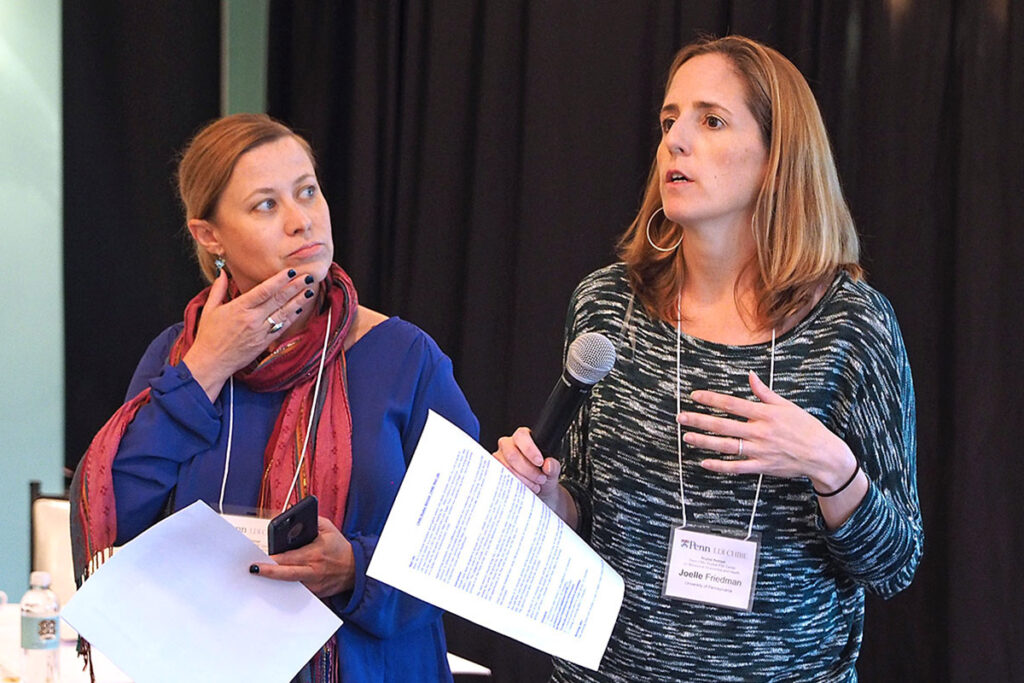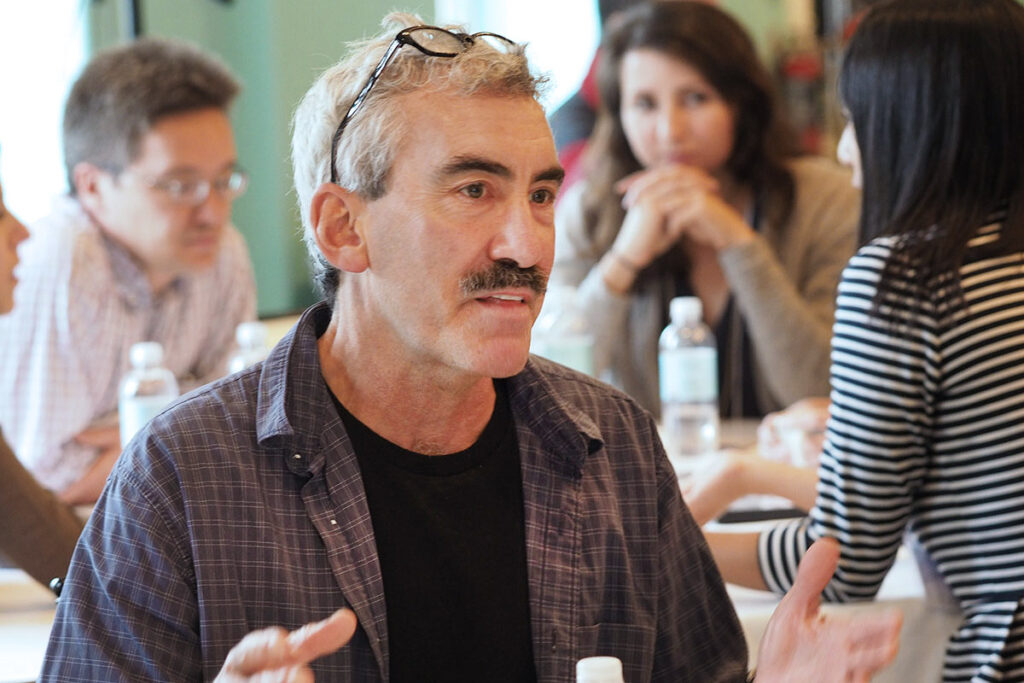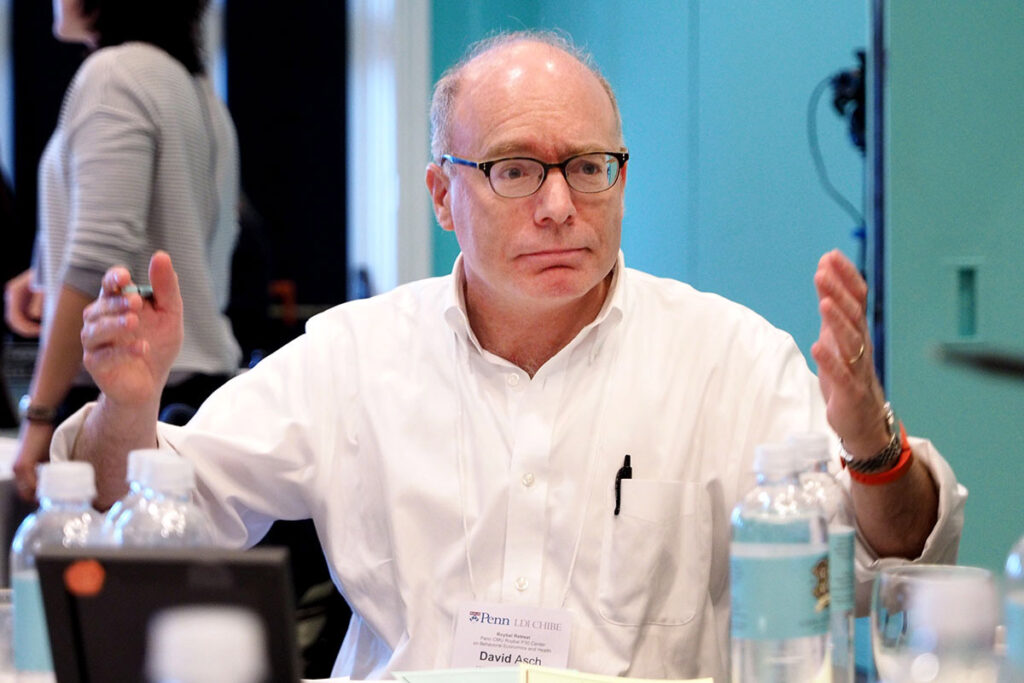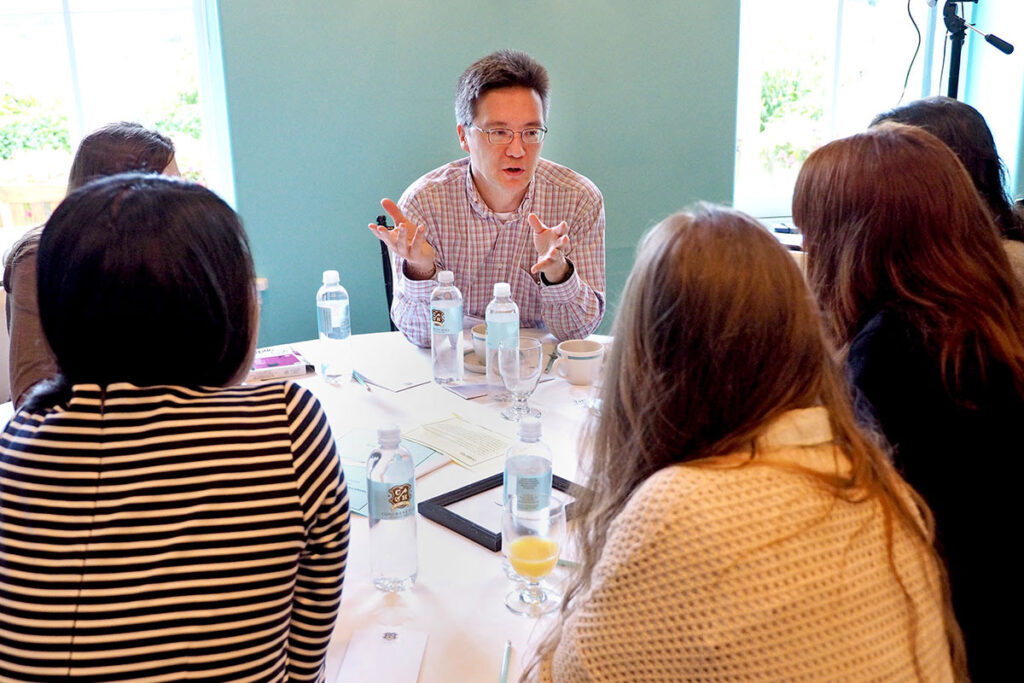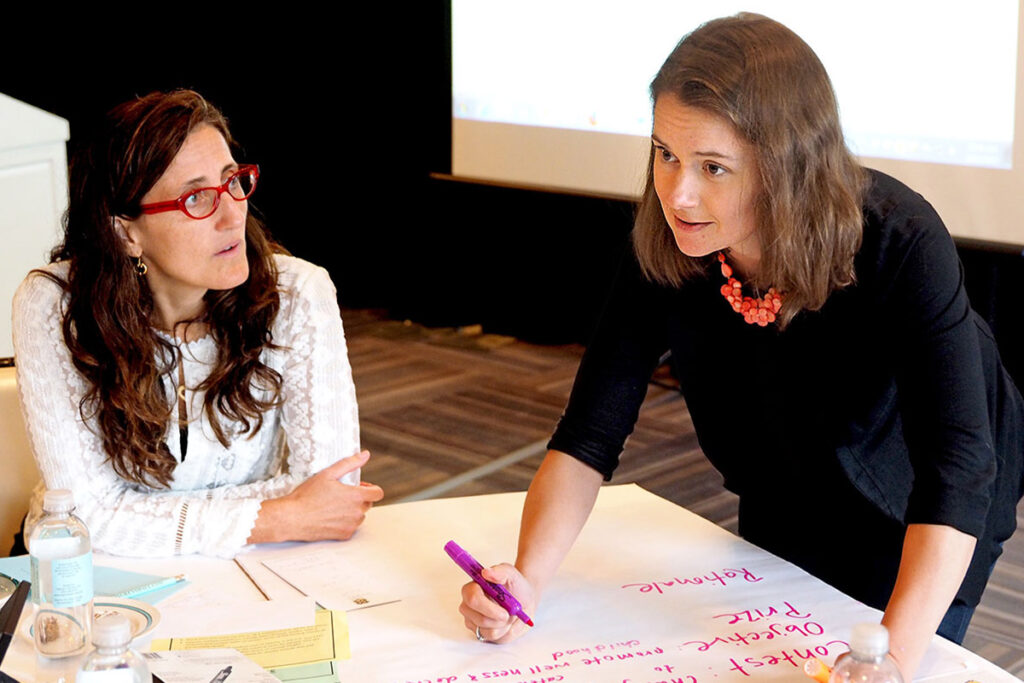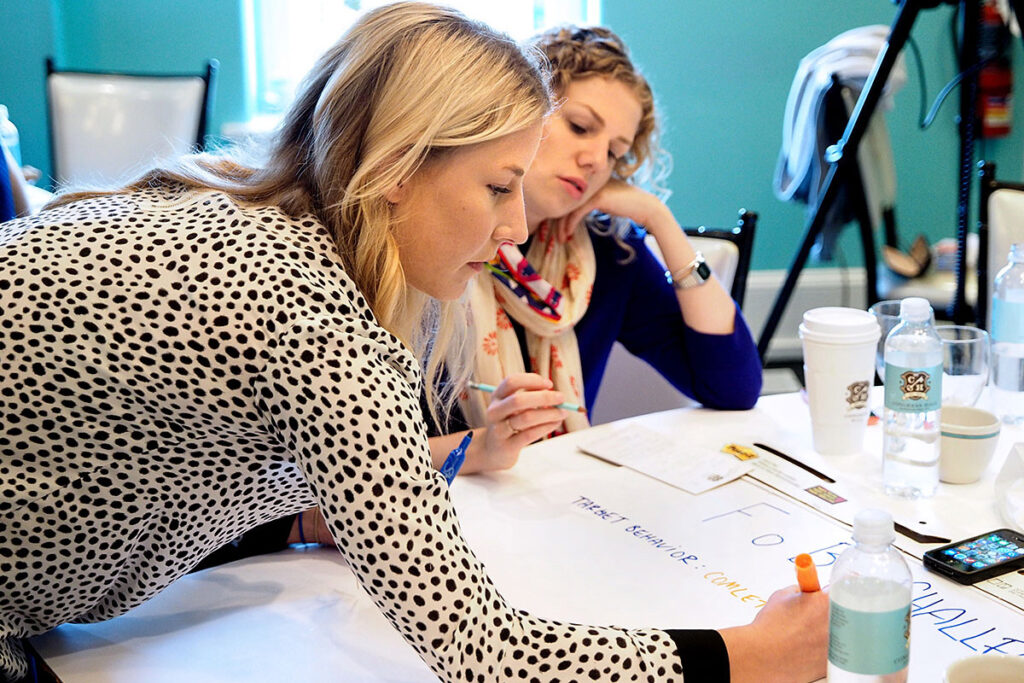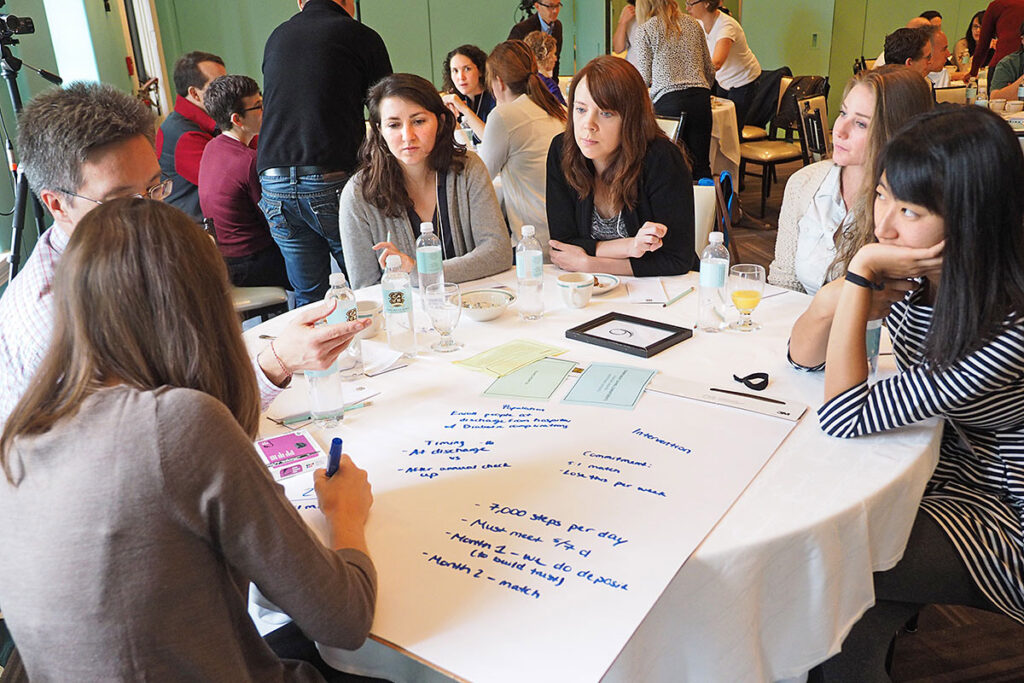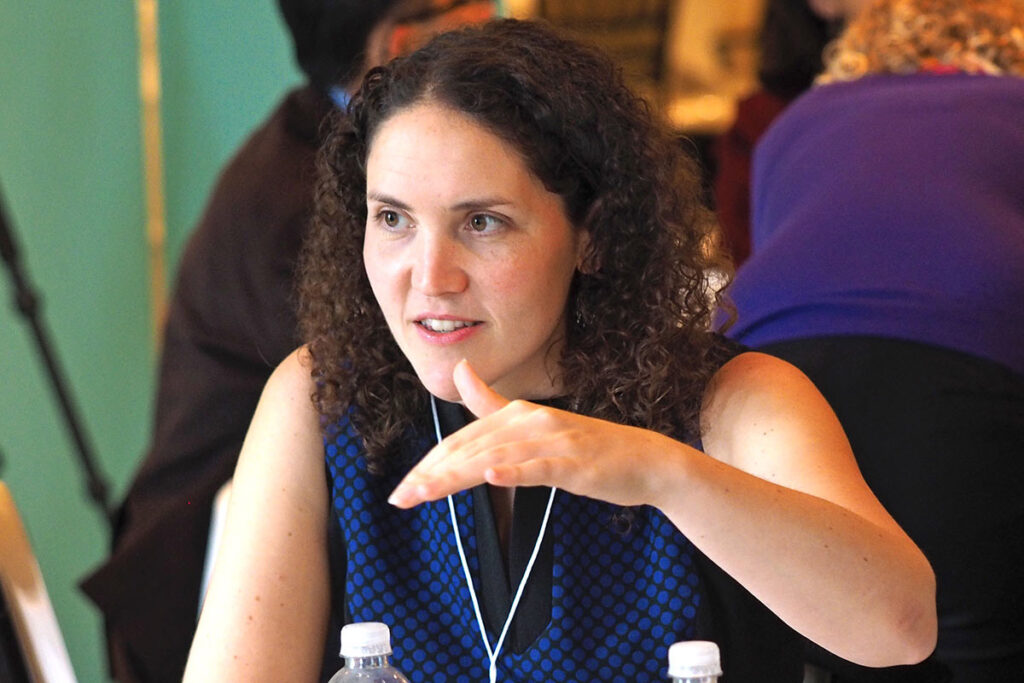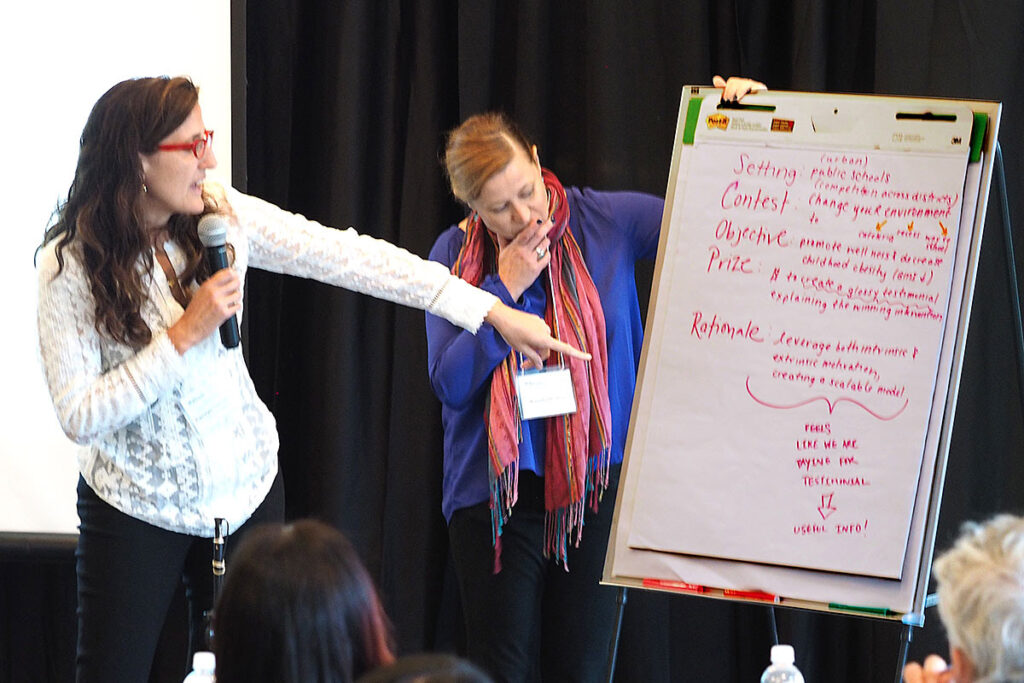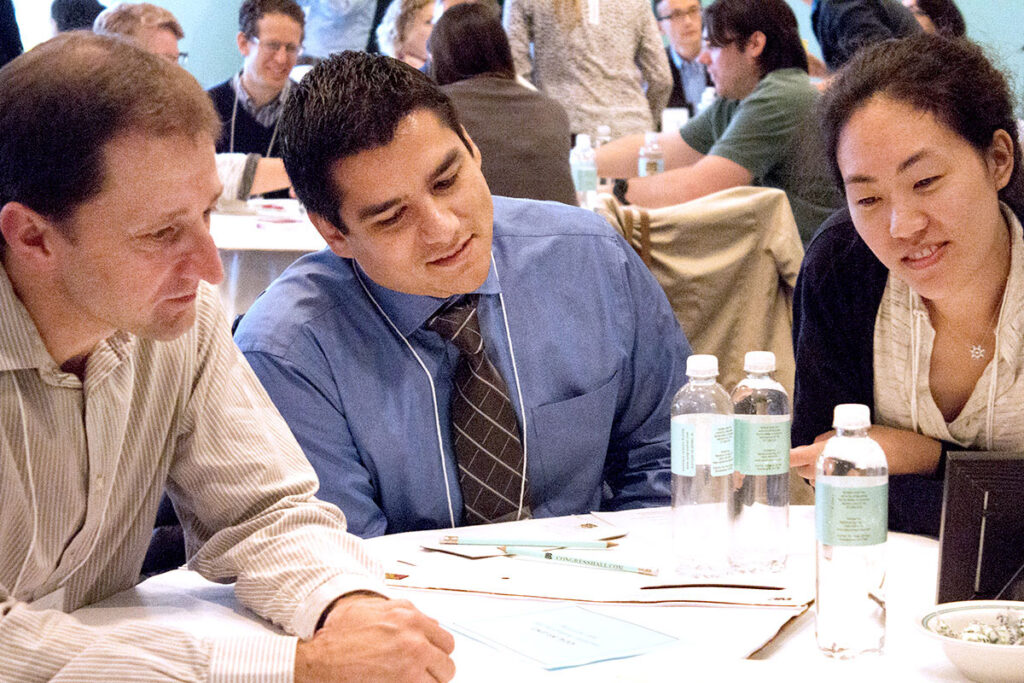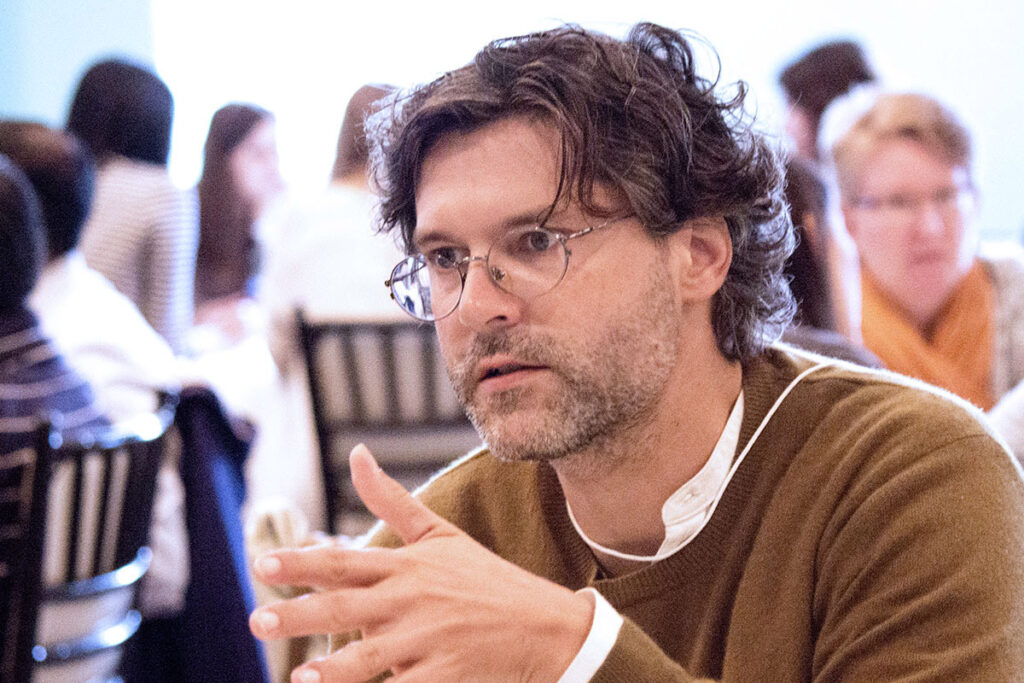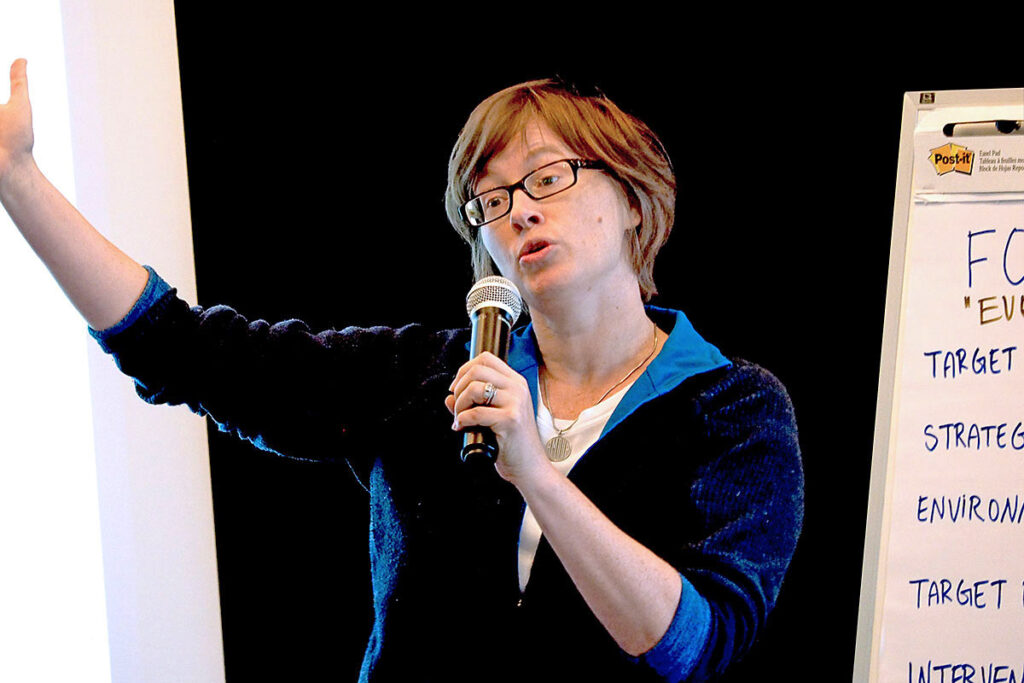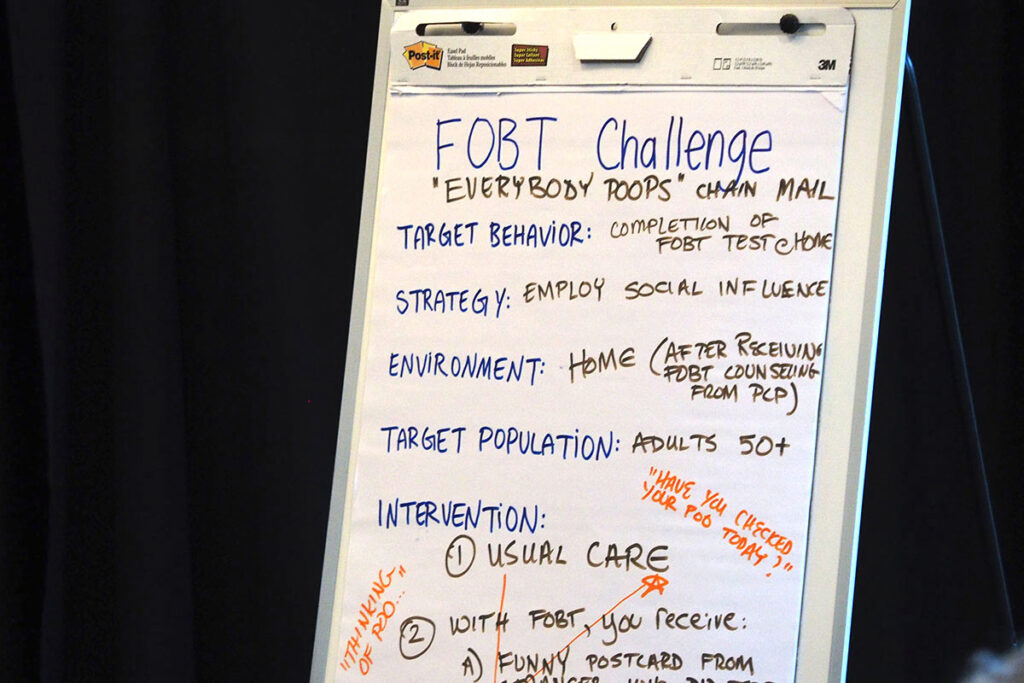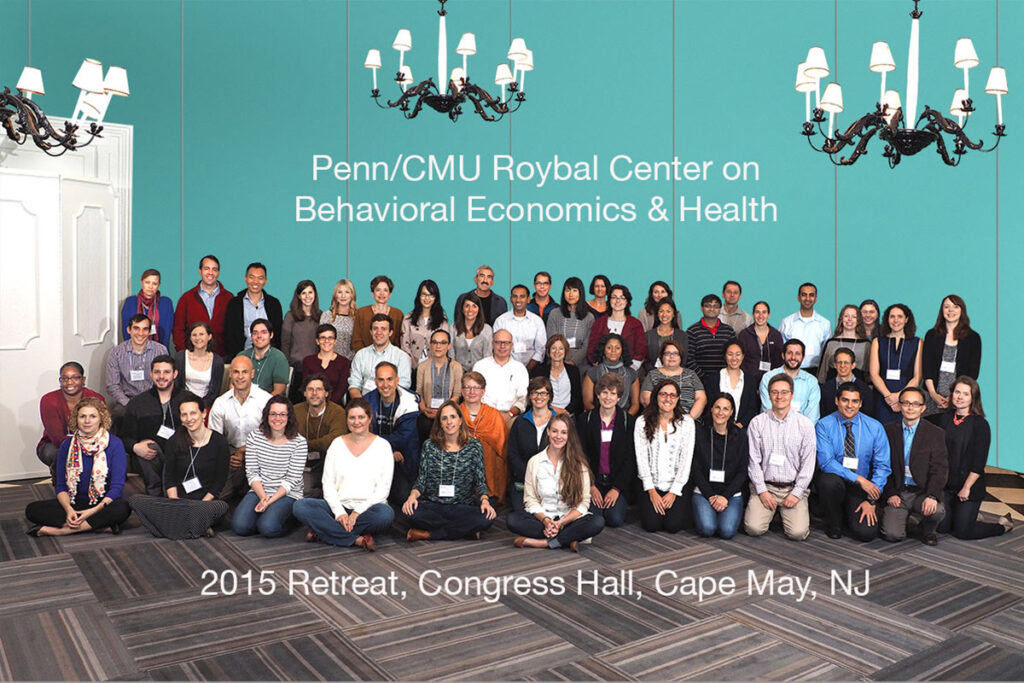News
Roybal Behavioral Economics Retreat 2015: INNOVATION COMPETITION
A Photo and Video Report From The Two-Day Cape May Event

Along with sessions in which scientists present their latest work, the annual two-day Roybal Behavioral Economics Retreat includes an “innovation tournament”-like competition. This year’s split the audience into ten groups and challenged each to develop a three-element idea for a new health behavioral intervention in 20 minutes. A group vote determined the winning team. The venue was Congress Hall in Cape May, NJ.
Laurie Norton, MA, a Project Director at LDI’s Center for Health Incentives and Behavioral Economics (CHIBE), and CHIBE Associate Director Joelle Friedman, MPA (Above, left) explain the innovation contest rules. Each team was given a disease or behavior, a place where the intervention would occur, and an intervention type. An example assignment: “smoking cessation,” “gamification,” and “insurance company.” This means: conceive a game-based smoking-reduction intervention that could be deployed by an insurance company. Above, right, CMU Center for Behavioral Decision Research Director George Loewenstein, PhD, kicks off discussions of his group’s assignment, which was “obesity,” “choice architecture,” and “community organization.”
Executive Director of Penn Medicine’s Center for Health Care Innovation David Asch, MD, MBA (above, left), outlines a possible idea for his group’s assignment of “hypertension,” “home,” and “habit formation and treatment feedback.” Above, right, Penn FIELDS End-of-Life Decision Science Center Clinical Research Specialist Stephanie Szymanski and Wharton School Assistant Professor of Health Care Management Ashley Swanson, PhD, ponder the best way to approach “diabetes,” “hospital,” and “commitment device or pre-commitment.”
CHIBE Director, Professor at both Penn’s Perelman School of Medicine and the Wharton School, and Vice Chairman for Health Policy of Penn’s Medical Ethics and Policy Department Kevin Volpp, MD, PhD (above, left), leads a group that outlines a six-month intervention for discharged diabetic patients based on the “fresh start” effect and a deposit contact-based commitment device. Above, right, Perelman School Assistant Professor of Family Medicine and Community Health Carolyn Cannuscio, ScD, ScM, and Wharton School Assistant Professor of Health Care Management Amanda Starc, PhD, help work out the final points of their group’s “obesity,” “choice architecture,” and “community organization” assignment.
Penn Medicine Center for Health Care Innovation Clinical Research Assistant Christina Jameson and CHIBE Clinical Research Coordinator Noora Marcus, MA (above, left) work on the poster that will ultimately detail Group 7’s winning intervention idea. Above, right, Group 9 works out its final poster language (l to r) CHIBE Clinical Research Coordinator Tori Ulrich, MPH; Kevin Volpp; Stephanie Szymanski; Ashley Swanson; FIELDS Project Manager Jacqueline McMahon, and Penn PhD student Hae Nim (Sunny) Lee.
Group 8 (above, left) debates possible intervention elements for its “smoking cessation,” “gamification,” and “insurance company” assignment. (l to r) Medical Ethics and Health Policy Department instructor Heather Schofield, PhD; CHIBE Biostatistician Raymond Lim, MA; FIELDS Program Analyst Nicole Gabler, PhD, MHA, MPH; Penn Master of Sciences Program in Health Policy Research student Emily Rubin, JD, MD; and Perelman School of Medicine Assistant Professor Peter Reese, MD, MSCE. Above, right is Heather Schofield.
Making Group 10’s presentation (above, left) about an intervention that would offer school’s in the country’s 10 poorest urban school districts incentives to address obesity in more effective ways are Carolyn Cannuscio and Laurie Norton. Above, right, Penn/VA Postdoctoral Research Fellow Eric VanEpps, PhD, explains Group 1’s idea for a study to test whether positive or negative feedback produces the best level of behavioral change among hypertension patients.
Participating in the Group 3 discussions (above, left) are Penn Medical Ethics & Health Policy Assistant Professor Harald Schmidt, PhD; Penn doctoral student Jason Brown; and Manager of the Penn PEACH Lab Diandra Wong. Above, right, Wharton Associate Professor of Business Economics and Public Policy Iwan Barankay, PhD, MSc.
Explaining the Group 7 idea that went on to win the competition is Penn School of Nursing Assistant Professor Alison Buttenheim, PhD, MBA. The intervention, which was aimed at increasing the number of people who complete a Fecal Occult Blood Test (FOBT), involved using a humorously friendly chain-letter strategy to de-stigmatize the screening procedure and encourage others to use the do-it-at-home smear test that detects colon cancer.
